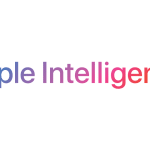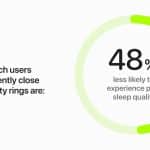Property management software running on the cloud solves the scaling problems experienced by the real estate sector. It consolidates all the information and processes over the cloud, enabling real estate agents to manage their properties remotely and on the go.
This is very useful for property managers who work on multiple properties at different places, or perhaps even in different countries. These managers can effortlessly scale their operations in synchronization with the growth of their business. This is not an option available with traditional software systems. In addition, property management software provides rent collection, tenant and maintenance scheduling, as well as financial reporting all in one place.

Expanding Your Property Portfolio
Increasing the number of properties owned is a major achievement that requires great attention to detail during its planning and execution stages. Property managers and investors benefit from cloud-based property management systems as they assist them in making decisions that can alter the outcomes. With the help of the property management software, users can analyze the prevailing market conditions and estimate the potential gains from future purchases.
For instance, it is possible to discern regions with room for improvement by studying rental yield against occupancy figures. Furthermore, the software’s all-in-one property examination features allow for more accurate inspections that determine acceptability of properties to be purchased. Businesses can expand without increasing the amount of work since collection of rent, tenant management, and other activities are done more efficiently.
The property management software provides new information updates as they make it possible to resolve maintenance issues, address tenant’s concerns, and handle lease agreements from any location. Let’s say a manager has to keep track of multiple buildings located in various cities, cloud technology gives them the capability to check the property status, communicate with the respective tenants, and approve rental payments all in one system. Enhanced data security measures allow sensitive data security like tenant information and financial transactions to be safeguarded during transactions and operations in the company.
Adopting new properties and new tenants can often be a painstaking task owing to the large amount of documentation and waiting involved. However, advanced property management systems do away with all of this thanks to automation and ease of use. New properties can easily be added to the database along with all of their details, images, and required documents. Tenants enjoy a greatly improved experience and include upload of documents, digital leases, and automated credit checks in their applications.
A classic example would be a property manager responsible for onboarding a new residential house. Using this software, he can feed the necessary information and details of the property. His prospective tenants will now have access to the property information and will be able to apply online for the apartment. This greatly increases the speed of the service.
Furthermore, the tenant management systems enable communication and document sharing to be done without barriers, and real estate professionals can monitor the entire process regardless of his location. Thus, not only is the amount of work reduced, but the experience of the property managers as well as the tenants improves, further smoothing relations between both parties in the future.
Enhancing Property Marketing Efforts
For property managers who are seeking to broaden their scope while simplifying internal processes, combining property management solutions on the cloud with listing solutions is revolutionary. The software facilitates easier advertising of units by connecting directly to popular online real estate listing services. Such integration allows property managers the convenience of posting new vacancies to several sites simultaneously with no manual effort, minimizing the chances of misinformation or discrepancies existing on different sites. For example, a property manager can change the rental amount or indicate if the unit is still available on the software, and all the linked platforms will automatically reflect the new changes ensuring that information is accurate and consistent everywhere.
Not only does integrating these systems save time, it increases advertising exposure as well. A broader reach makes it possible for rental properties to garner the attention of prospective tenants quicker and subsequently increasing cash flow while decreasing vacancy rates. Furthermore, the integrated systems can help in closing the gap where user engagement such as views and inquiries per each listing is captured and showcased on the software’s dashboard. Property managers can take advantages of this data to strategize their listings to maximize tenant engagement by pinpointing which platforms have the most engagement, modifying descriptions, or changing rental conditions to better suit tenants.
The property management software automates all the work concerning potential tenants by giving them a comprehensive management platform and automated follow-up mechanisms. Information regarding a potential tenant’s data is captured immediately after inquiry, and organized into a singularly structured database. Every lead can be followed from inception to different phases of the leasing pipeline – revealing invaluable information regarding their level of interest, preferences, and feedback.
After a prospective tenant has had a chance to view a property, the software can be instructed to automatically send out thank you mails and application reminders which ensures the engagement is sustained. With rental properties being so competitive, consistent communication is critical, and automating these processes puts managers of the property at a strategic advantage. It goes without saying that, by automating these tasks, landlords are able to devote their time to more important matters such as offering customized experiences to tenants or enhancing the properties.
Lastly, the software can always provide detailed reports about timelines and rates for leads conversions, which would give property managers constructive data and guide them while structuring follow up processes and tenant acquisition. All these data points inform what adjustments should be made to the rental terms, marketing, or even which property changes are needed to more effectively appeal to tenants and speed up leasing.
The functionalities provided by cloud-based property management software always improves the marketing of a property. These platforms give property managers a range of digital tools, which are designed to increase marketing output and productivity. They have the ability of creating and running custom campaigns, which target specific demographics, property features, and market research.
Optimizing Team Collaboration and Management
The implementation of role-based access control on cloud-based property management application is one of the areas that has the most impact on security and productivity. This means property managers have the ability to set restrictions on the applications, allowing certain team members access only to the tools and information relevant to their positions. In the case of property managers, it entails monitoring crucial operations like lease management, rent collection, preparation of financial statements, and communication with tenants to ascertain the health of the property and satisfaction of tenants.
Access limitation also benefits the maintenance personnel by streamlining the processes of managing work orders. They can be alerted in real-time of pending requests for maintenance, update them as repairs are done, and monitor stock of needed materials, all while on the move with their phones. This helps ensure that properties are kept in good condition, resulting in less downtime and more satisfaction from tenants.
Mobile access is crucial to business success in the modern world of real estate. The introduction of cloud-based property management software enables field operations as employees can use and manipulate the software from wherever they are. With this mobility, it is not necessary to be confined in an office setting; property managers can control a number of properties located in different areas while remaining plugged into current data and analytics.
For maintenance workers, mobile access means being able to receive messages on the go, record done work immediately, and seek permission for important and urgent repairs. All of this instant messaging improves business efficacy by barrier monitoring and triaging response times while decreasing the amount of time it takes to complete repairs in an effort to satisfy tenants.












